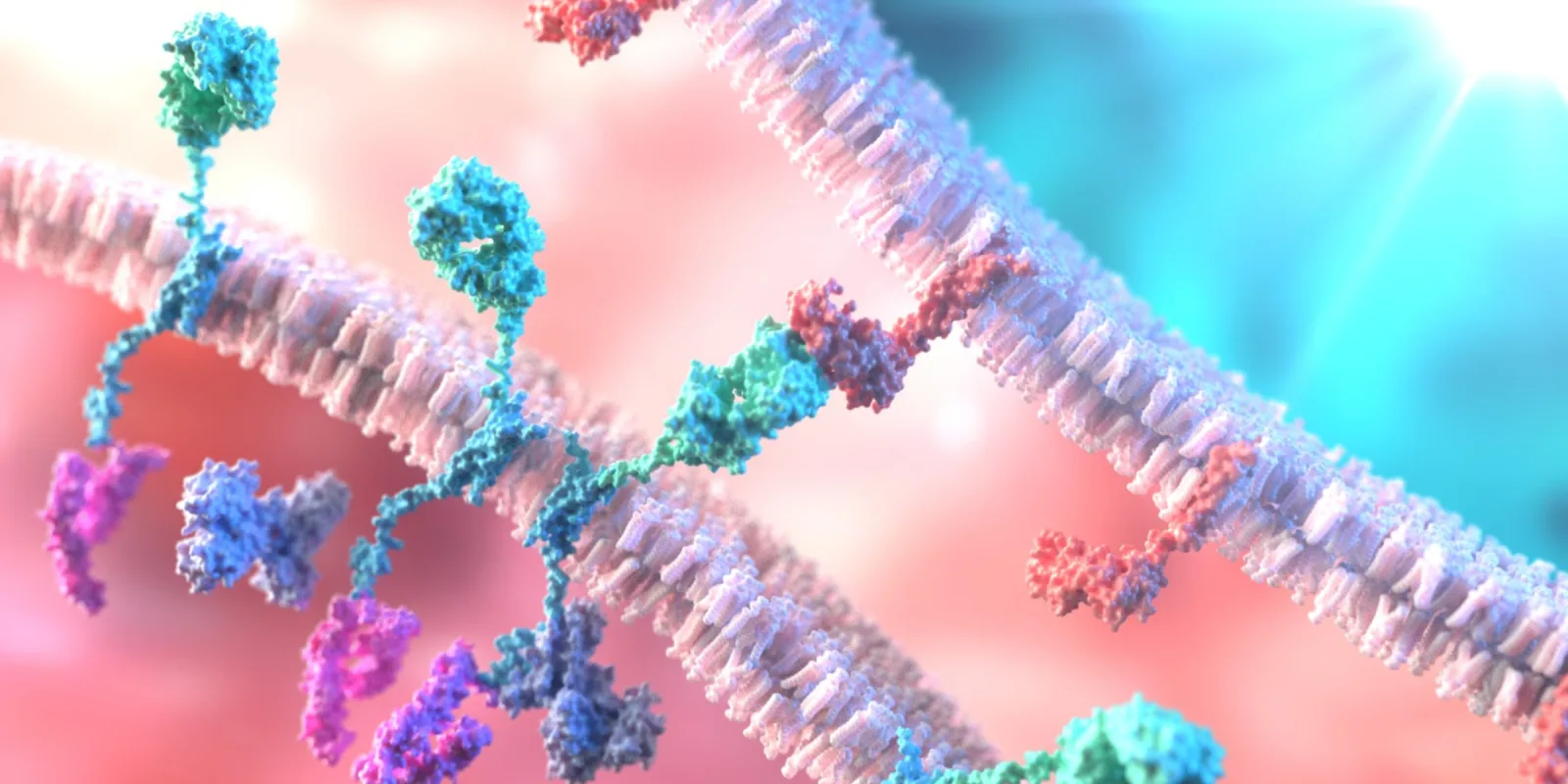The therapeutic landscape in lymphoma has recently made considerable progress with CAR-T cell therapies, although we still have much knowledge to gain.
One study selected by the organizers as one of the best abstracts of TCT, Zuma-12 [1] evaluated axicabtagene ciloleucel as first-line therapy in high-risk large B-cell lymphoma (LBCL), including “double-hit lymphoma” (DHL), finding an overall response rate (ORR) of 92%, whereas 75% of those patients had ongoing response at data cutoff. A manageable safety profile was seen as grade ≥ 3 cytokine release syndrome (CRS) and neurologic events (NE) occurred in 20% and 27% of patients, respectively. It is important to mention that this is the first trial evaluating CAR-T cell therapy as a first-line treatment for patients with lymphoma. This is particularly relevant as a separate single-center retrospective analysis [2] in the relapsed or refractory (R/R) setting revealed that patients with DHL had fewer durable remissions post CAR-T in the way of shorter event free survival (EFS) and duration of response (DOR), but no difference in overall survival (OS). It is possible that using these novel cellular therapies as earlier lines of treatment may be potentially beneficial, particularly in high-risk patients, hence this is currently under evaluation in clinical trials.
Just before TCT started, on Feb. 5, the FDA approved lisocabtagene maraleucel for the treatment of adult patients with relapsed or refractory (R/R) LBCL after two or more lines of systemic therapy. Data regarding lisocabtagene maraleucel was presented in TCT 2021 from non-university medical centers across inpatient (n = 12) and outpatient (n = 22) settings from their outreach study [3]. Lisocabtagene maraleucel is a CAR-T cell product administered at equal target doses of CD8+ and CD4+ in R/R LBCL. Tocilizumab and/or corticosteroid use for CRS and/or NE management was low for both groups (inpatients n=2 or 17% and outpatients n=5 or 23%). In addition, ORR was 75% for inpatients and 84% for outpatients, whereas the complete response (CR) rate was 50% and 68%, respectively. The authors concluded that lisocabtagene maraleucel showed efficacy in both inpatient and outpatient settings. The FDA approval of lisocabtagene maraleucel for R/R LBCL in February 2021, the fourth CAR-T cell in the market, came on the heels of the approval of brexucabtagene autoleucel (KTE-X19) in R/R mantle cell lymphoma (MCL) in July 2020.
KTE-X19 also made an appearance in TCT 2021 with the one-year follow-up data. After a median follow-up of 17.5 months, the ORR was 92% with a CR rate of 67%. When it comes to the efficacy-evaluable patients, 48% had ongoing responses at data cutoff [4].
Regarding R/R indolent non-Hodgkin’s lymphoma (iNHL), the ELARA trial evaluated tisagenlecleucel in follicular lymphoma (FL) and the Zuma-5 trial evaluated axicabtagene ciloleucel in FL and marginal zone lymphoma (MZL). Of the first 52 patients evaluable for efficacy in the ELARA trial, CR was 65.4% and ORR was 82.7% [5]. Of the 104 patients with NHL evaluable for efficacy in the Zuma-5 trial, the ORR was 92% and CR was 76% with a median follow-up of 17.5 months [6]. Together, these two studies show activity of CAR-T cells in iNHL.
To improve the current landscape regarding cellular therapies and decrease delays regarding manufacturing time, there are clinical trials evaluating novel allogeneic CAR-T cells (e.g., ALLO 501A ALPHA-2 trial NCT04416984). Ex vivo-expanded allogeneic cord blood-derived natural killer cells (e.g., AB-101 NCT04673617) seem to be attractive. CAR-T cell trials evaluating other targets as CD70 (e.g., CTX130 NCT04502446) or tandem targets as CD19/CD20 (MB-CAR-T2019.1 NCT03870945) are also under evaluation.
Eventual relapse post-CAR-T cell therapy remains a major problem, and ongoing studies are evaluating the long-term effectiveness of CAR-T cell engineering techniques. Vesicular stomatitis virus oncolytic therapy with CD19 antigen (VSV-19) was evaluated in vitro showing VSV-19 induced CD19 expression on monocytes and tumor cells, thereby re-stimulating and enhancing the anti-tumor activity of CAR-T cells [7]. This is an interesting study that provides a rationale to study VSV-19 in patients with suboptimal responses to CART19 as this approach could potentially augment responses to CAR-T cell maneuvers.
To rescue patients after progression post-CAR-T cells, there are several interesting agents under development that could potentially have activity including mosunetuzumab (CD20/CD3 Bispecific Antibody), checkpoint inhibitors (NCT04205409), and TRPH-222 (anti-CD22 ADC NCT03682796).
In summary, CAR-T cell therapies are being investigated in multiple hematologic malignancies across diverse scenarios, including the outpatient setting. Although some of these reports are preliminary, the findings highlight new potential therapeutic strategies to improve efficacy and decrease toxicity of CAR-T cell therapies.
EWN declares no relevant COI.
JM does consulting for Pharmacyclics, Bayer, Gilead/Kite Pharma, Pfizer, Janssen, Juno/Celgene, BMS, Kyowa, Alexion, Beigene, Fosunkite, Innovent, Seattle Genetics, and Beigene; research funding for Bayer, Gilead/Kite Pharma, Celgene, Merck, Portola, Incyte, Genentech, Pharmacyclics, Seattle Genetics, Janssen, Millennium; receives honoraria from Kyowa and Seattle Genetics; and has a speaker's bureau conflict for Gilead/Kite Pharma, Kyowa, Bayer, Pharmacyclics/Janssen, Seattle Genetics, Acrotech/Aurobindo, Beigene, Verastem, AstraZeneca, Celgene/BMS, Genentech/Roche, and Abbvie.
References
1. Interim Analysis (IA) of ZUMA-12: A Phase 2 Study of Axicabtagene Ciloleucel (Axi-Cel) As First-Line Therapy in Patients (Pts) with High-Risk Large B Cell Lymphoma (LBCL) https://tct.confex.com/tct/2021/meetingapp.cgi/Paper/17209
2. Double-Hit Lymphomas Predictive of Earlier Relapse after CAR T-Cell Therapy https://tct.confex.com/tct/2021/meetingapp.cgi/Paper/16949
3. Outcomes of Treatment with the Chimeric Antigen Receptor (CAR) T Cell Therapy Lisocabtagene Maraleucel (liso-cel) at Nonuniversity Medical Centers (NMCs): Initial Results from the Outreach Study in Patients with Relapsed/Refractory (R/R) Large B-Cell Lymphoma (LBCL) https://tct.confex.com/tct/2021/meetingapp.cgi/Paper/17226
4. One-Year Follow-up of ZUMA-2, the Multicenter, Registrational Study of KTE-X19 in Patients (Pts) with Relapsed/Refractory (R/R) Mantle Cell Lymphoma (MCL) https://tct.confex.com/tct/2021/meetingapp.cgi/Paper/17237
5. Efficacy and Safety of Tisagenlecleucel in Adult Patients with Relapsed/Refractory Follicular Lymphoma: Interim Analysis of the Phase 2 Elara Trial
https://tct.confex.com/tct/2021/meetingapp.cgi/Paper/16724
6. Primary Analysis of ZUMA-5: A Phase 2 Study of Axicabtagene Ciloleucel (Axi-Cel) in Patients (Pts) with Relapsed/Refractory (R/R) Indolent Non-Hodgkin Lymphoma (iNHL) https://tct.confex.com/tct/2021/meetingapp.cgi/Paper/17052
7. Vesicular Stomatitis Virus (VSV) Engineered to Express CD19 Stimulates Anti-CD19 Chimeric Antigen Receptor Modified T Cells and Promotes Their Anti-Tumor Effects https://tct.confex.com/tct/2021/meetingapp.cgi/Paper/17427
Image: Alpha Tauri 3D Graphics / shutterstock






